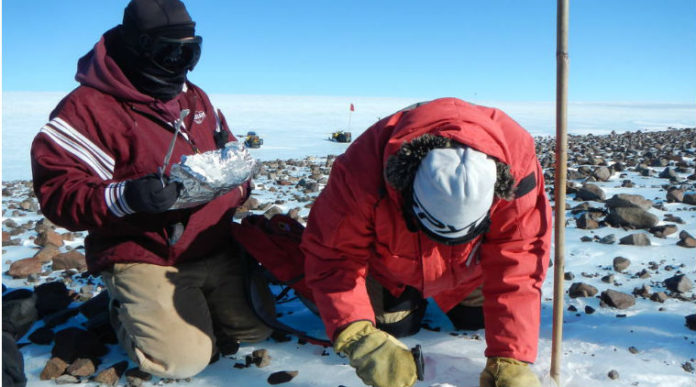NASA has renewed its search for Antarctic meteorites to help learn more about the primitive building blocks of the solar system and answer questions about Earth’s neighbours like the Moon and Mars.
NASA, the National Science Foundation (NSF) and the Smithsonian Institution (SI) recently renewed their agreement to search for, collect and curate Antarctic meteorites in a partnership known as Antarctic Search for Meteorites Programme (ANSMET).
The signing of this new joint agreement advances the programme for an additional decade, replacing an earlier agreement signed in 1980, NASA said.
“Antarctic meteorites are posing new questions about the formation and early history of our solar system. Some of these questions are spurring new exploration of the solar system by NASA missions,” Smithsonian meteorite scientist Tim McCoy said.
Since the US began searching for meteorites in Antarctica in 1976, the ANSMET programme has collected more than 23,000 specimens, dramatically increasing the number of samples available for study from the Moon, Mars and asteroids.
Among them are the first meteorites discovered to come from the Moon and Mars, and the well-known ALH 84001 Martian meteorite, which helped renew interest in Mars exploration in the 1990s.
Meteorites are natural objects that fall to Earth from space and survive intact so they can be collected on the ground, or – in this case – on ice.


























